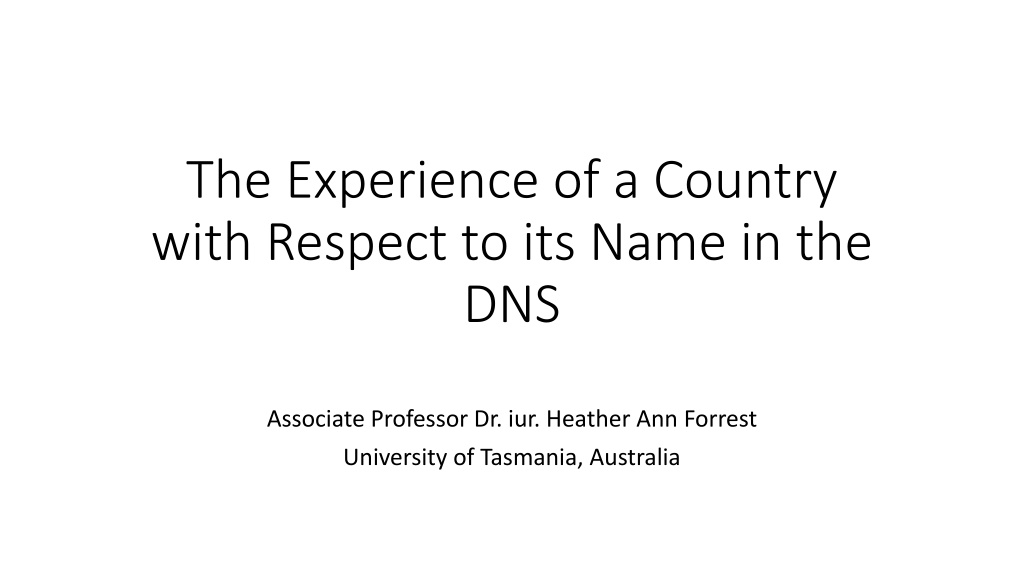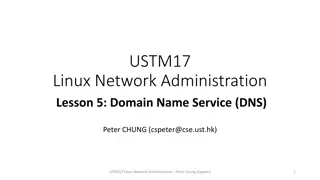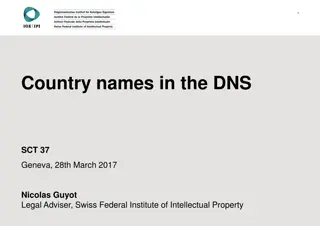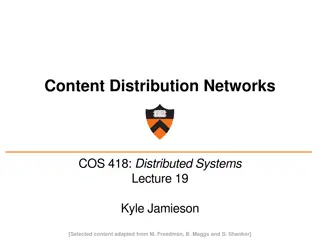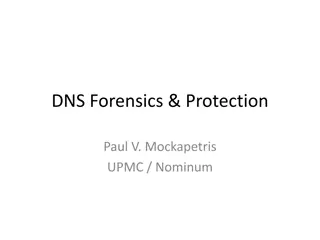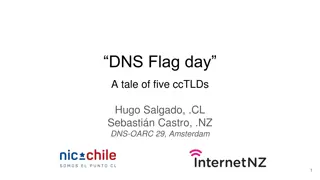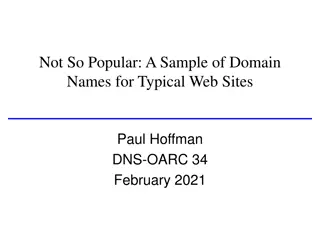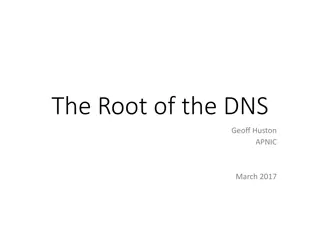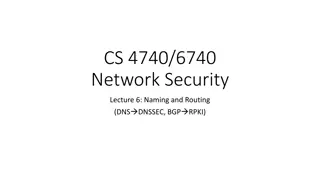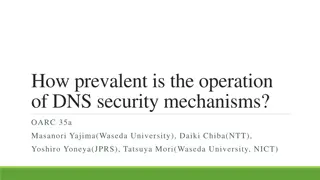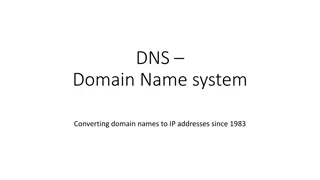Understanding Factors in Country Names and DNS Confusion
This content explores the intricacies of country names in the Domain Name System (DNS), covering long-form, short-form, colloquial/native names, and more. It delves into the case of Switzerland as an example, detailing its various official and colloquial names. Additionally, the text discusses factors that play a role in preventing confusion in DNS, such as the relationship between geographic names and domain strings, government reputation, and trademark rights.
Download Presentation

Please find below an Image/Link to download the presentation.
The content on the website is provided AS IS for your information and personal use only. It may not be sold, licensed, or shared on other websites without obtaining consent from the author. Download presentation by click this link. If you encounter any issues during the download, it is possible that the publisher has removed the file from their server.
E N D
Presentation Transcript
The Experience of a Country with Respect to its Name in the DNS Associate Professor Dr. iur. Heather Ann Forrest University of Tasmania, Australia
What constitutes a country name? Long-form name Short-form name Colloquial/native names Languages Official Other Acronyms and abbreviations Variants Codes Swiss Confederation Schweizerische Eidgenossenschaft Conf d ration Suisse Confederazione Svizzera Confederaziun svizra Confoederatio Helvetica Switzerland Schweiz Suisse Svizzera svizra Helvetica Helvetia Su ssa Suitzan Switserland
Other factors in preventing confusion The similarity between the geographic name and geographic domain name/string. The reputation or degree of distinctiveness of the geographic name/string and the named location. The reputation of the government/s relevant to the name/string. Internet user sophistication regarding the DNS. The relationship of the reasonable internet user to the name. The existence of trademark rights incorporating or comprising the name. The existence of other, non-geographic meanings of the name. The existence of multiple geographic locations having the same name. The relationship, if any, between a second-level domain name and the top-level domain in which it is registered.
